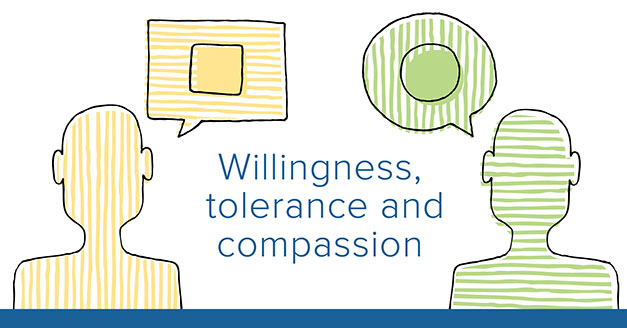
Practicing willingness can be challenging, yet freeing and enlightening. Willingness is the act of being open and letting in ideas and opinions from someone else — especially those that we do not agree with.
It is safe to stand behind our own beliefs and culture and see them as the “right” way. In fact, we all believe we are right. No one would cling to an opinion that they view as wrong. This concept is clearly illustrated in the books, “Mistakes Were Made, But Not By Me” and “Freakonomics.”
What happens when two opposing opinions come face to face? Often we perceive an opposing opinion as a direct threat, which must be stopped and silenced. We refuse to engage in conversation or listen to the arguments.
Practicing willingness is the opposite of rejecting someone else’s opinion. With willingness, we strive to understand their point of view. We express curiosity and ask questions about how they arrived at their conclusions. Hearing another opinion is not an attack on us. We learn, grow, and sometimes change our minds when engaging in conversation with someone with a different opinion. There is no threat to listening to a different point of view. Listening to the opposing opinion makes a person wise and informed.